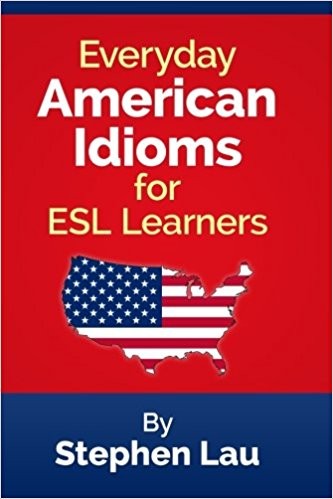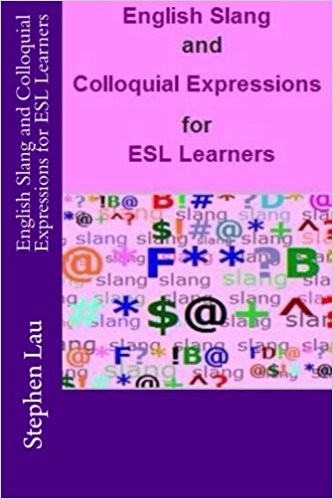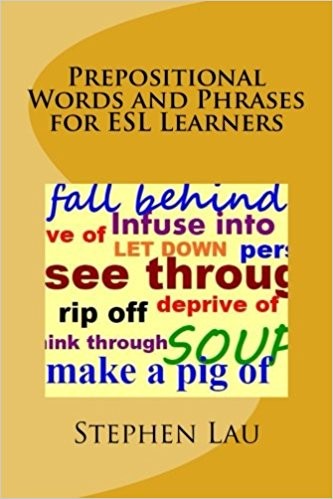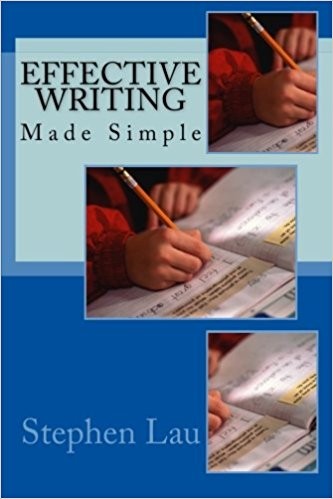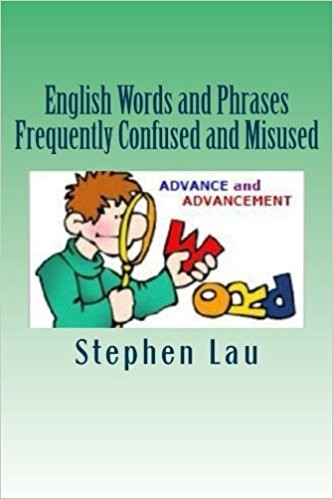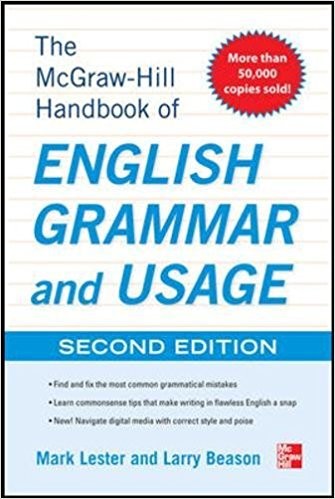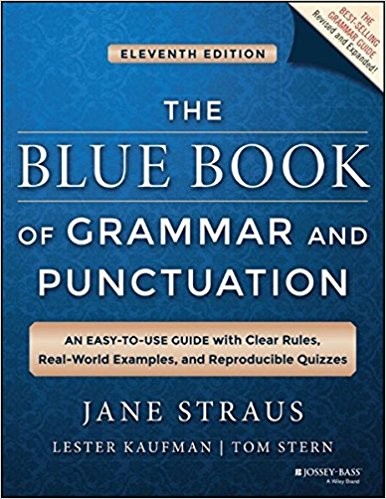





Click here to get your FREE Handbook for ESL Learners.

Correcting the Incorrect
By Stephen Lau
Which of the following sentences are incorrect?
(1) The Bible tells us to follow Jesus’ teachings.
(2) Follow William Bates’s methods of good vision.
(3) You must do this for your own conscience’s sake.
(4) The Old Testament explains in detail Moses’ Ten Commandments.
(5) A wise dog scratches it’s own fleas.
(6) Hurry up! It’s getting late.
(7) She is Charles’s girlfriend.
Incorrect
You must do this for your own conscience’s sake.
A wise dog scratches it’s own fleas.
Explanation
Always form the possessive of singular nouns and abbreviations by adding an apostrophe and an s. This rule applies even if the noun or abbreviation ends in s. The exceptions are the possessives of ancient proper names, such as Jesus and Moses, and such forms as for conscience’ sake, and for righteousness’ sake.
“It’s” means “it is”, while “its” is a possessive.
Which of the following sentences are incorrect?
(1) Coming home from school yesterday, I met my cousin who came to see me.
(2) My cousin is older than I. An undergraduate of Harvard University who is studying medicine.
(3) The man was screaming for help. No response.
(4) I had worked at the computer for more than ten hours, I felt completely exhausted.
Incorrect
My cousin is older than I. An undergraduate of Harvard University who is studying medicine.
Explanation
“An undergraduate of Harvard University who is studying medicine” is a subordinate clause, which has to be attached to a complete sentence.
My cousin, who is older than I, is an undergraduate studying medicine at Harvard University. (improved)
My cousin is older than I. He is an undergraduate studying medicine at Harvard University. (improved)
Incorrect
I had worked at the computer for more than ten hours, I felt completely exhausted.
Explanation
Never join two independent sentences with a comma. Instead, use a period (full-stop). You may use a colon for explanation, a semi-colon to replace a conjunction, a coordinate conjunction (e.g. and, but, or, nor, for, so yet), or simply use a full-stop to have two independent sentences.
e.g. I felt completely exhausted: I had worked at the computer for more than ten hours. (improved: the colon explaining why I was exhausted)
e.g. I felt completely exhausted: I had worked at the computer for more than ten hours. (improved: the semi-colon replacing the subordinate conjunction “because” or “for”)
e.g. I felt completely exhausted because I had worked at the computer for more than ten hours.(improved)
e.g. I had worked at the computer for more than ten hours, and I felt completely exhausted. (improved)
e.g. I had worked at the computer for more than ten hours. I felt completely exhausted. (improved)
Which of the following sentences are incorrect?
(1) He is one of those few students who get into an elite college.
(2) She is the only one of the students who get into Harvard University.
(3) Everybody thinks they are smart.
(4) None of us is perfect.
(5) None are so wrong as those who think they are always right.
(6) In the burglary, every window, door, and mirror were smashed.
(7) The long and the short of this proposal are that it is easy but costly.
(8) Give and take is important to a healthy marriage.
(9) Politics are something that many like to pursue.
(10) The police are coming.
Incorrect
(2),(3),(6), (7), and (9)
Explanation
(2) She is the only one of the students who gets into Harvard University. (improved: there are many students, and she is the only one student who gets into Harvard University. In sentence (1), a few students get into an elite college, and he is one of them.)
(3) Everybody thinks he or she is smart. (improved: “everybody” is singular. A singular verb is used when “none” means “no one” or “not one”(4); a plural verb is used when “none” suggests more than one, as in (5).
(6) In the burglary, every window, door, and mirror was smashed. (improved: “every” is singular.
(7) The long and the short of this proposal is that it is easy but costly.(improved: certain common compounds are often considered singular, requiring a singular verb, e.g. “bread and butter”, “give and take” (8); and “the long and the short.”
(9) Politics is something that many like to pursue. (improved: some nouns, although appearing plural, such as “economics” and “politics” (9), require a singular verb. Likewise, some nouns, appearing singular, such as “police” (10), may require a plural verb.
By Stephen Lau
Which of the following sentences are incorrect?
(1) The Bible tells us to follow Jesus’ teachings.
(2) Follow William Bates’s methods of good vision.
(3) You must do this for your own conscience’s sake.
(4) The Old Testament explains in detail Moses’ Ten Commandments.
(5) A wise dog scratches it’s own fleas.
(6) Hurry up! It’s getting late.
(7) She is Charles’s girlfriend.
Incorrect
You must do this for your own conscience’s sake.
A wise dog scratches it’s own fleas.
Explanation
Always form the possessive of singular nouns and abbreviations by adding an apostrophe and an s. This rule applies even if the noun or abbreviation ends in s. The exceptions are the possessives of ancient proper names, such as Jesus and Moses, and such forms as for conscience’ sake, and for righteousness’ sake.
“It’s” means “it is”, while “its” is a possessive.
Which of the following sentences are incorrect?
(1) Coming home from school yesterday, I met my cousin who came to see me.
(2) My cousin is older than I. An undergraduate of Harvard University who is studying medicine.
(3) The man was screaming for help. No response.
(4) I had worked at the computer for more than ten hours, I felt completely exhausted.
Incorrect
My cousin is older than I. An undergraduate of Harvard University who is studying medicine.
Explanation
“An undergraduate of Harvard University who is studying medicine” is a subordinate clause, which has to be attached to a complete sentence.
My cousin, who is older than I, is an undergraduate studying medicine at Harvard University. (improved)
My cousin is older than I. He is an undergraduate studying medicine at Harvard University. (improved)
Incorrect
I had worked at the computer for more than ten hours, I felt completely exhausted.
Explanation
Never join two independent sentences with a comma. Instead, use a period (full-stop). You may use a colon for explanation, a semi-colon to replace a conjunction, a coordinate conjunction (e.g. and, but, or, nor, for, so yet), or simply use a full-stop to have two independent sentences.
e.g. I felt completely exhausted: I had worked at the computer for more than ten hours. (improved: the colon explaining why I was exhausted)
e.g. I felt completely exhausted: I had worked at the computer for more than ten hours. (improved: the semi-colon replacing the subordinate conjunction “because” or “for”)
e.g. I felt completely exhausted because I had worked at the computer for more than ten hours.(improved)
e.g. I had worked at the computer for more than ten hours, and I felt completely exhausted. (improved)
e.g. I had worked at the computer for more than ten hours. I felt completely exhausted. (improved)
Which of the following sentences are incorrect?
(1) He is one of those few students who get into an elite college.
(2) She is the only one of the students who get into Harvard University.
(3) Everybody thinks they are smart.
(4) None of us is perfect.
(5) None are so wrong as those who think they are always right.
(6) In the burglary, every window, door, and mirror were smashed.
(7) The long and the short of this proposal are that it is easy but costly.
(8) Give and take is important to a healthy marriage.
(9) Politics are something that many like to pursue.
(10) The police are coming.
Incorrect
(2),(3),(6), (7), and (9)
Explanation
(2) She is the only one of the students who gets into Harvard University. (improved: there are many students, and she is the only one student who gets into Harvard University. In sentence (1), a few students get into an elite college, and he is one of them.)
(3) Everybody thinks he or she is smart. (improved: “everybody” is singular. A singular verb is used when “none” means “no one” or “not one”(4); a plural verb is used when “none” suggests more than one, as in (5).
(6) In the burglary, every window, door, and mirror was smashed. (improved: “every” is singular.
(7) The long and the short of this proposal is that it is easy but costly.(improved: certain common compounds are often considered singular, requiring a singular verb, e.g. “bread and butter”, “give and take” (8); and “the long and the short.”
(9) Politics is something that many like to pursue. (improved: some nouns, although appearing plural, such as “economics” and “politics” (9), require a singular verb. Likewise, some nouns, appearing singular, such as “police” (10), may require a plural verb.

